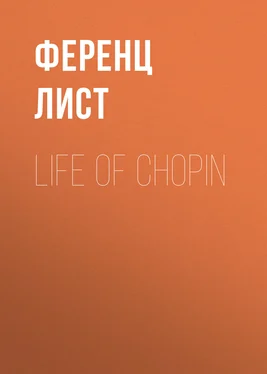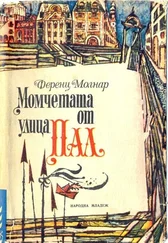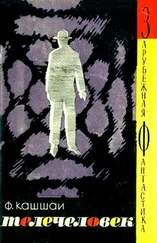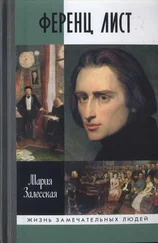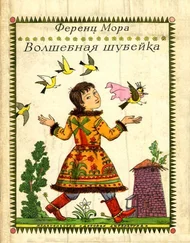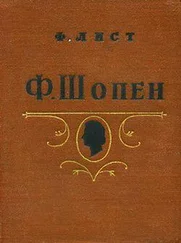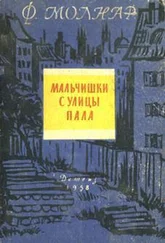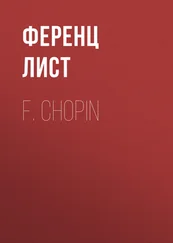Ференц Лист - Life of Chopin
Здесь есть возможность читать онлайн «Ференц Лист - Life of Chopin» — ознакомительный отрывок электронной книги совершенно бесплатно, а после прочтения отрывка купить полную версию. В некоторых случаях можно слушать аудио, скачать через торрент в формате fb2 и присутствует краткое содержание. Жанр: foreign_antique, foreign_home, music_dancing, на английском языке. Описание произведения, (предисловие) а так же отзывы посетителей доступны на портале библиотеки ЛибКат.
- Название:Life of Chopin
- Автор:
- Жанр:
- Год:неизвестен
- ISBN:нет данных
- Рейтинг книги:5 / 5. Голосов: 1
-
Избранное:Добавить в избранное
- Отзывы:
-
Ваша оценка:
- 100
- 1
- 2
- 3
- 4
- 5
Life of Chopin: краткое содержание, описание и аннотация
Предлагаем к чтению аннотацию, описание, краткое содержание или предисловие (зависит от того, что написал сам автор книги «Life of Chopin»). Если вы не нашли необходимую информацию о книге — напишите в комментариях, мы постараемся отыскать её.
Life of Chopin — читать онлайн ознакомительный отрывок
Ниже представлен текст книги, разбитый по страницам. Система сохранения места последней прочитанной страницы, позволяет с удобством читать онлайн бесплатно книгу «Life of Chopin», без необходимости каждый раз заново искать на чём Вы остановились. Поставьте закладку, и сможете в любой момент перейти на страницу, на которой закончили чтение.
Интервал:
Закладка:
The pristine and vigorous brilliancy of the Polonaise was again suddenly given to it by a composer of true genius. Weber made of it a Dithyrambic, in which the glittering display of vanished magnificence again appeared in its ancient glory. He united all the resources of his art to ennoble the formula which had been so misrepresented and debased, to fill it with the spirit of the past; not seeking to recall the character of ancient music, he transported into music the characteristics of ancient Poland. Using the melody as a recital, he accentuated the rhythm, he colored his composition, through his modulations, with a profusion of hues not only suitable to his subject, but imperiously demanded by it. Life, warmth, and passion again circulated in his Polonaises, yet he did not deprive them of the haughty charm, the ceremonious and magisterial dignity, the natural yet elaborate majesty, which are essential parts of their character. The cadences are marked by chords, which fall upon the ear like the rattling of swords drawn from their scabbards. The soft, warm, effeminate pleadings of love give place to the murmuring of deep, fall, bass voices, proceeding from manly breasts used to command; we may almost hear, in reply, the wild and distant neighings of the steeds of the desert, as they toss the long manes around their haughty heads, impatiently pawing the ground, with their lustrous eye beaming with intelligence and full of fire, while they bear with stately grace the trailing caparisons embroidered with turquoise and rubies, with which the Polish Seigneurs loved to adorn them. [Footnote: Among the treasures of Prince radziwill at Nieswirz were to be seen, in the days of former splendor, twelve sets of horse trappings, each of a different color, incrusted with precious stones. The twelve Apostles, life size, in massive silver, were also to be seen there. This luxury will cease to astonish us when we consider that the family of Radziwill was descended from the last Grand Pontiff of Lithuania, to whom, when he embraced Christianity, were given all the forests and plains which had before been consecrated to the worship of the heathen Deities; and that toward the close of the last century, the family still possessed eight hundred thousand serfs, although its riches had then considerably diminished. Among the collection of treasures of which we speak, was an exceedingly curious relic, which is still in existence. It is a picture of St. John the Baptist, surrounded by a Bannerol bearing the inscription: "In the name of the Lord, John, thou shalt be Conqueror." It was found by Jean Sobieski himself, after the victory which he had won, under the walls of Vienna, in the tent of the Vizier Kara Mustapha. It was presented after his death, by Marie d'Arquin, to a Prince Radziwill, with an inscription in her own hand-writing which indicates its origin, and the presentation which she makes of it. The autograph, with the royal seal, is on the reverse side of the canvas.] How did Weber divine the Poland of other days? Had he indeed the power to call from the grave of the past, the scenes which we have just contemplated, that he was thus able to clothe them with life, to renew their earlier associations? Vain questions! Genius is always endowed with its own sacred intuitions! Poetry ever reveals to her chosen the secrets of her wild domain!
All the poetry contained in the Polonaises had, like a rich sap, been so fully expressed from them by the genius of Weber, they had been handled with a mastery so absolute, that it was, indeed, a dangerous and difficult thing to attempt them, with the slightest hope of producing the same effect. He has, however, been surpassed in this species of composition by Chopin, not only in the number and variety of works in this style, but also in the more touching character of the handling, and the new and varied processes of harmony. Both in construction and spirit, Chopin's Polonaise In A, with the one in A flat major, resembles very much the one of Weber's in E Major. In others he relinquished this broad style: Shall we say always with a more decided success? In such a question, decision were a thorny thing. Who shall restrict the rights of a poet over the various phases of his subject? Even in the midst of joy, may he not be permitted to be gloomy and oppressed? After having chanted the splendor of glory, may he not sing of grief? After having rejoiced with the victorious, may he not mourn with the vanquished? We may, without any fear of contradiction, assert, that it is not one of the least merits of Chopin, that he has, consecutively, embraced ALL the phases of which the theme is susceptible, that he has succeeded in eliciting from it all its brilliancy, in awakening from it all its sadness. The variety of the moods of feeling to which he was himself subject, aided him in the reproduction and comprehension of such a multiplicity of views. It would be impossible to follow the varied transformations occurring in these compositions, with their pervading melancholy, without admiring the fecundity of his creative force, even when not fully sustained by the higher powers of his inspiration. He did not always confine himself to the consideration of the pictures presented to him by his imagination and memory, taken en masse, or as a united whole. More than once, while contemplating the brilliant groups and throngs flowing on before him, has he yielded to the strange charm of some isolated figure, arresting it in its course by the magic of his gaze, and, suffering the gay crowds to pass on, he has given himself up with delight to the divination of its mystic revelations, while he continued to weave his incantations and spells only for the entranced Sibyl of his song.
His GRAND POLONAISE in F SHARP MINOR, must be ranked among his most energetic compositions. He has inserted in it a MAZOURKA. Had he not frightened the frivolous world of fashionable life, by the gloomy grotesqueness with which he introduced it in an incantation so fantastic, this mode might have become an ingenious caprice for the ball-room. It is a most original production, exciting us like the recital of some broken dream, made, after a night of restlessness, by the first dull, gray, cold, leaden rays of a winter's sunrise. It is a dream-poem, in which the impressions and objects succeed each other with startling incoherency and with the wildest transitions, reminding us of what Byron says in his "DREAM:"
Конец ознакомительного фрагмента.
Текст предоставлен ООО «ЛитРес».
Прочитайте эту книгу целиком, на ЛитРес.
Безопасно оплатить книгу можно банковской картой Visa, MasterCard, Maestro, со счета мобильного телефона, с платежного терминала, в салоне МТС или Связной, через PayPal, WebMoney, Яндекс.Деньги, QIWI Кошелек, бонусными картами или другим удобным Вам способом.
1
The Hungarian costume worn by Prince Nicholas Esterhazy at the coronation of George the Fourth, is still remembered in England. It was valued at several millions of florins.
2
It has been translated into German.—T.
Интервал:
Закладка:
Похожие книги на «Life of Chopin»
Представляем Вашему вниманию похожие книги на «Life of Chopin» списком для выбора. Мы отобрали схожую по названию и смыслу литературу в надежде предоставить читателям больше вариантов отыскать новые, интересные, ещё непрочитанные произведения.
Обсуждение, отзывы о книге «Life of Chopin» и просто собственные мнения читателей. Оставьте ваши комментарии, напишите, что Вы думаете о произведении, его смысле или главных героях. Укажите что конкретно понравилось, а что нет, и почему Вы так считаете.
